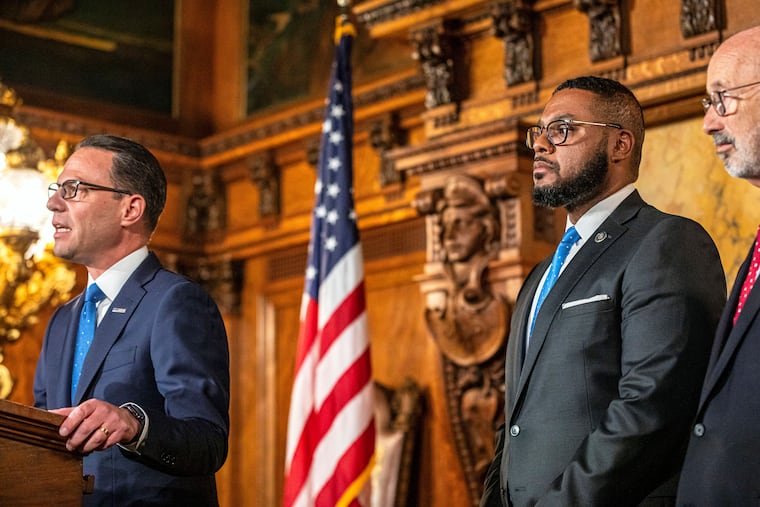When it comes to school vouchers, Josh Shapiro should pass
As a professor of education policy, I can say without reservation that vouchers hurt academic achievement for children. How much so? Think about what the pandemic did to standardized test scores.

Josh Shapiro — like Katie Hobbs in Arizona and Gretchen Whitmer in Michigan — is part of a class of Democratic candidates who this month won the key to the governor’s office for the next four years.
As a professor of education policy, I was struck by how public schools became a prominent issue in each of their campaigns, especially the debate over school vouchers — the use of tax dollars to fund tuition for private schools.
Unlike Hobbs and Whitmer, however, Shapiro has expressed some cautious support for vouchers — including (at least in principle) the “Lifeline Scholarship” bills that have already been introduced by the current legislature.
And since it appears that a Democratic majority in the Pennsylvania House is razor-thin, and Republicans will keep the Senate, Shapiro may be pressured or even encouraged by some to move forward with that support.
The governor-elect has defended his position by saying, “It’s what I believe,” and that vouchers provide students with additional avenues to “help them achieve success.”
Unfortunately, the data show exactly the opposite.
I used to be a cautious supporter, too. But I’ve been studying school vouchers for 17 years now, and I can say, without reservation, that study after study show that vouchers hurt academic achievement for children. That is especially true of the low-income students who would be eligible under the currently proposed plans in Pennsylvania to which Shapiro gave qualified support.
How bad are vouchers? Think about what the COVID-19 pandemic did to standardized test scores.
How bad are vouchers for students? Think about what the COVID-19 pandemic did to standardized test scores. Independent studies of voucher programs in Washington, D.C., Indiana, Louisiana, and Ohio have all shown catastrophic impacts on student achievement, with few-to-no offsetting gains on other measures such as educational attainment.
Some of the worst results have been found in Ohio, where voucher impacts on student learning were roughly twice the impact of the pandemic on academic outcomes.
Here’s another problem: Vouchers mostly just provide tax breaks to families whose kids are already in private school. In places such as Arizona, New Hampshire, and Wisconsin, we know that more than 75% of voucher applicants were in private schools anyway by the time they applied for state funding. Even those in low-income families.
As a practical matter, that could be fixed in Pennsylvania by tying voucher eligibility to time in public school first, as well as capping the fiscal loss public districts faced when students transferred to private schools — as one current proposal has done. But that’s a short-term strategy.
Over the long term, vouchers simply represent new budgetary obligations for Pennsylvania taxpayers. The governor-elect has said he doesn’t view vouchers and support for public schools as a choice — that these positions are not a mutually exclusive “either/or.”
That’s a false hope. As the experience in other states shows, there is no way that long-term commitments to funding public schools can be reconciled with commitments to underwriting vouchers.
And unlike the devastating impacts that vouchers have on kids, we know that major investments in public schools have sustained and positive effects on learning and nonacademic outcomes, such as reductions in crime.
Side by side, the evidence says investments in public schools pay off, while investments in vouchers push kids further behind.
Perhaps the only remaining argument for vouchers is simply faith-based: that tax dollars should support religious education, even if the evidence says those programs harm academics. The U.S. Supreme Court essentially did just that this summer with its ruling in Carson v. Makin, which found that voucher programs could not exclude religious schools. That ruling was in line with the court’s long-held position that vouchers can exist constitutionally.
But just because we can doesn’t mean we should.
Looking from outside the state at the Pennsylvania gubernatorial campaign, it was refreshing to hear someone like Josh Shapiro stand up for something he says he believes in — even if it rankles some supporters.
But at some point belief has to give way to facts. And the facts from across the country say vouchers are more of an anchor than a lifeline for kids.
Joshua M. Cowen is a professor of education policy at Michigan State University. jcowen@msu.edu @joshcowenMSU